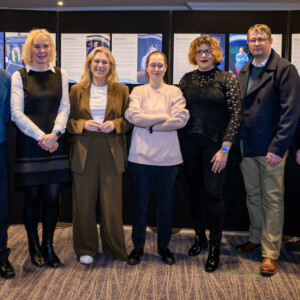 Landlords and Letting Agents need to take more responsibility for the individuals staying in their properties, if Police Scotland and supporting agencies are to effectively tackle trafficking and modern day slavery.
Landlords and Letting Agents need to take more responsibility for the individuals staying in their properties, if Police Scotland and supporting agencies are to effectively tackle trafficking and modern day slavery.
The message to landlords comes as the Scottish Government introduces a new Bill to crack down on those who traffic or exploit vulnerable people, with potential maximum life sentences to those found guilty of the crime.
Individuals trafficked into the country will often be housed in rented accommodation and effectively trapped into a job, which could involve illegal activity and prostitution – paying a meagre wage then taken to pay for housing and living costs.
The Scottish Business Resilience Centre (SBRC) is playing a key role as a partner in the Serious Organised Crime Taskforce in Scotland, assisting Police Scotland in its efforts to protect businesses and individuals from the damaging illegal trade.
Concerned Landlords and letting agencies should contact the Police on the 101 non-emergency service if they are at all suspicious of a property that is housing trafficked individuals.
Director of the SBRC, Mandy Haeburn-Little, said: “The sad fact is that all the individuals trafficked into Scotland must live somewhere.
“It can be a particularly difficult problem to monitor, as any application for tenancy will only mention a few names, whereas in reality, properties can be overcrowded with trafficked workers.
“A landlord’s suspicions can arise from anywhere and information passed on could help Police with the final piece in a jigsaw on a suspect residing in that property.
“It is of course in the best interests of the landlord that this is tackled, both ethically and for the future use of the property.
“There are also many business implications with trafficking, firms operating illegally automatically place pressure on honest competitors who pay a fair wage and tax.
The warning comes as part of a crackdown on the damaging trade, which included the recent high profile case of Shamsul Arefin, who trafficked four men from Bangladesh to Argyll, Scotland and entrapped them as modern day slaves, working in the Stewart Hotel near Appin.
In late July this year, Arefin, who managed the Stewart Hotel was sentenced to three years in jail, taking the total Human Trafficking convictions in Scotland to four for the year, with 12 cases pending.
Detective Chief Inspector Ruth Gilfillan, Police Scotland’s Human Trafficking Unit, said:
“Trafficked people are forced to work in a number of ways including in hotels, as we saw recently, in cannabis cultivations, in nail-bars or in prostitution. Often they are hidden from view of the general public. They are vulnerable and they are at risk of harm. Many of our recent investigations involve people forced into sex work, most of which now takes place off street in flats and houses, the majority of which are rented. A significant amount of work has been undertaken, both nationally and locally, to improve understanding of trafficking within Scotland and in relation to the ‘journey’ of a victim, it is clear to us that privately rented flats feature consistently, either as a place victims are placed or worse, exploited.
“It is important that businesses involved in letting out flats are aware that not only is Human Trafficking prevalent within Scotland but is significantly aligned to organised crime gangs where people are exploited for profit and power. In that regard our investigative and strategic responses are linked to the Scottish Government Serious Organised Crime Strategy.
The Scottish Government has assessed that serious organised crime groups cost Scottish society billions of pounds each year, with human trafficking and the associated crimes making up a substantial contribution to that figure.
The Scottish Government is now planning to bring forward legislation to make Scotland an even more hostile place for traffickers or those exploiting vulnerable people, as part of its wide-ranging Human Trafficking strategy, which will look to raise awareness of the issue as well as providing training and increased engagement with businesses.
Ruth, added: “It is a difficult and challenging crime but one we are determined to tackle. Many victims of trafficking do not even recognise that they are just that – victims. For those that do, they often cannot escape the situation they have found themselves in through fear, debt or threats.
“I am grateful for the support of the SBRC and letting agencies in highlighting this to the private flat owners across Scotland. They can help us identify those at risk and allow police and our partners to intervene and help victims and to identify those who are responsible for the control and exploitation.”
Ruth added: “The trafficked individual will likely be promised legitimate work, often in a bar or restaurant, however in reality will be paid a minimal amount, deducted from ‘rent and living costs’ and will be effectively trapped and powerless.
“Landlords and letting agencies have an important role to play in helping Police Scotland and its partners tackle human trafficking. We are asking them to be responsible by making sure they know who is renting their premises.
“This awareness will help us make Scotland a hostile environment for traffickers to operate in and put an end to modern day slavery.”
Kath Harper, the lead prosecutor on Human Trafficking at the Crown Office said:”Human Trafficking is modern-day slavery in which perpetrators violate the rights of their victims, forcing them into physical labour or criminal enterprise.
“The Perpetrators exploit human beings for their own financial benefit and prey on the vulnerable, closing off their avenues of escape.
“Often those who have been trafficked will have no control over their finances, or their passport, or even their freedom to leave their accommodation and speak freely.
The Lord Advocate recently brought together chief prosecutors from all over the UK to join forces in tackling these offenders. They have pledged to work together across boundaries to rise to the challenges to disrupt this abhorrent trade.
“We are determined to drive it out of Scotland, and the public have a part to play too.
“Anybody with any information relating to human trafficking should report it to the Police, or, if they wish to remain anonymous, to Crimestoppers on 0800 555 111.”
Interested in PR for your business?
Get in touch with our PR agency in Edinburgh, on 0131 561 2244 or by using the form below:
Contact Form












